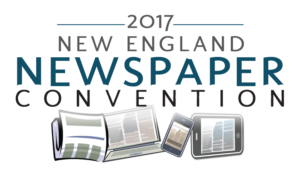By Alex Eng,
Bulletin Correspondent
Data journalism is one way for local news organizations to publish deeper and more engaging investigative stories, according to Tyler Dukes, a speaker at the upcoming New England Newspaper and Press Association winter convention in Boston.
“Data journalism is another tool that you can pull out when you want to answer big and important questions about how things are working or not working in your community,” Dukes said in a telephone interview.
As local news outlet staffs shrink because of changes in the industry, data analysis techniques are crucial for journalists seeking to answer big questions while pursuing deeper investigative or accountability pieces that engage larger audiences, Dukes said.
“With a little bit of training in some of these data journalism techniques, you think about things a little bit differently. You think about how to answer those questions a little bit faster or more efficiently.
“Or, it can help you get access to questions that are much larger and much more complicated than you’ve really ever been able to answer before just using the traditional means of sourcing.”
As a reporter at WRAL, an NBC-affiliate based in Raleigh, N.C., Dukes chased two stories in which data led to deeper investigative and accountability pieces on local public policy.
In one story, he found that one county in Northern North Carolina failed to serve one-third of domestic violence protection orders to alleged abusers, so victims were being forced to drop cases. After comparing the data with those of another, larger North Carolina county, Dukes concluded that there was a problem with how the former county was prosecuting its domestic violence cases.
“After we published that story, we heard some discussions from victims’ advocates pointing to this work and saying, ‘This is an important issue that needs to be talked about,’” he said. “The county we had featured is … really trying to figure out how to pool these resources together in one place for domestic violence victims that helps guide them through this process.”
In another story, Dukes tracked how effective the North Carolina state government’s business-attracting incentive policieswere at creating new jobs. He compared proposed job-creation numbers from the governor’s press releases with an employment database and found that in almost half of the cases, promised jobs were not being filled.
“There was a lot of discussion (in the North Carolina legislature) about this issue about how you judge the effectiveness of these programs. I think that as we continue to report on this stuff, we’re going to see more and more discussion that is informed by better reporting about incentives overall,” he said.
Dukes said that, although data is promising in its storytelling potential, data is not perfect, and journalists should treat data as skeptically as they would treat any other information source.
“It’s important to remember that there is a tendency to look at data and scores and indexes … and say that, ‘It’s data. It must be right. It’s objective. It’s the truth, with a capital T.’ But data is created and recorded by humans, and there’s plenty of errors in that process.
“Gaining a good sense of working with data and being comfortable with it is not necessarily doing the technical stuff but understanding that data analysis is not wizardry. It’s very similar to the way we interview and evaluate any other source’s credibility,” he said.
Dukes said better data literacy will help both journalists and politicians alike to evaluate policymaking.
“We’re going to see more data-driven algorithmic solutions guide public policy. We have to be in a good place in terms of our understanding of how this all works to be able to ask good critical questions of these systems,” he said.
Dukes is currently in Cambridge, Mass., on a Murrey Marder Nieman Fellowship in Watchdog Journalism. He is trying to find ways for reporters to embrace and get trained in data journalism, whether on the job in newsrooms or through college journalism programs.
At the New England Newspaper and Press Association winter convention, Dukes’ speech on “Peril and promise: Journalism in the age of data” will discuss the importance of using data, and how it can be used and misused. His talk will touch on why data literacy is crucial to enabling newsrooms to tell more powerful stories and make deeper impacts.
“What I would like to focus on is convincing people of the values and drawbacks of using data in reporting and how to overcome the challenges of bringing data-driven stories into the normal budget … so that newsrooms can really decide how these techniques might fit into their workloads.
“I do believe on a really deep level that these skills are really essential to being a good journalist in this century. Even a basic literacy in the use of data can go such a long way in building a reporter’s skills,” he said.
After completing his research fellowship, Dukes will return to his position as an investigative reporter specializing in data and public records for the state politics team at WRAL.
Before working at WRAL, Dukes was managing editor of the Duke University Reporter’s Lab, where he worked on a project to reduce the costs of investigative journalism. Before that, Dukes taught at the University of North Carolina-Chapel Hill’s journalism school and was a college newspaper adviser while freelancing for several newspapers.
Dukes received his undergraduate degree in science, technology and society from North Carolina State University.
The convention will take place Friday, Feb. 24, and Saturday, Feb. 25, in the Boston Marriott Long Wharf hotel.
Convention Speaker Dukes

‘Gaining a good sense of working with data and being comfortable with it is not necessarily doing the technical stuff but understanding that data analysis is not wizardry. It’s very similar to the way we interview and evaluate any other source’s credibility.’
—Tyler Dukes, Investigative reporter
WRAL-TV, Raleigh, NC
‘I do believe on a really deep level that these skills are really essential to being a good journalist in this century. Even a basic literacy in the use of data can go such a long way in building a reporter’s skills.
—Tyler Dukes

